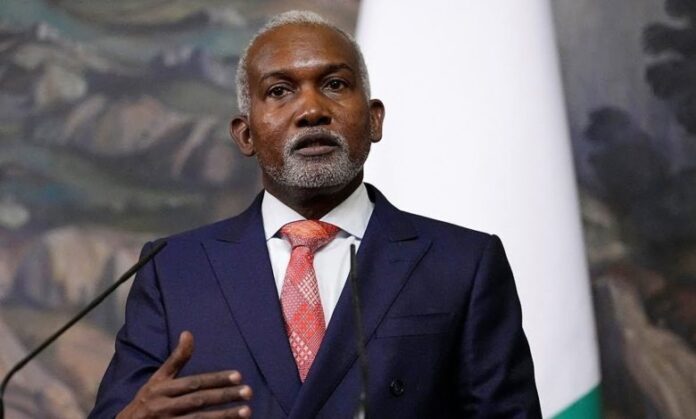There has been something that’s been making waves in the diplomatic world, especially for us here in Nigeria and across West Africa. You know how important strong international relationships are, right? Well, imagine you’re trying to build bridges, foster trade, and ensure security, and then suddenly, there’s a roadblock. That’s pretty much the sentiment coming from Nigeria’s Minister of Foreign Affairs, Ambassador Yusuf Tuggar, regarding reports of a planned visa clampdown by the United States on Economic Community of West African States (ECOWAS) countries.
It’s a big deal, and Ambassador Tuggar isn’t holding back. He’s effectively blasting the US over this potential move, and honestly, you can understand why.
More Than Just a Visa: It’s About Opportunity
Ambassador Tuggar, who also chairs the ECOWAS Mediation and Security Council, voiced his “concerns over the apparent inclusion of all ECOWAS member states in a new wave of United States visa restrictions.” He called this policy a “significant barrier,” and he’s not wrong.
Think about it: West Africa isn’t just a region; it’s a vibrant hub of economic potential. We’re talking about critical minerals, rare earths like Samarium (found right here in Tuggar’s home state of Bauchi!), and a burgeoning market. Businesses are looking to expand, investors are eyeing opportunities, and collaborations are vital for growth.
As Tuggar put it, “It would be most unfortunate if it comes to pass, because we are a region of opportunities ready to do deals. We would like to do deals with the US, but visa restrictions are non-tariff barriers to deals.” That’s a powerful way to frame it, isn’t it? It’s not just about individuals wanting to visit; it’s about the ease of doing business, the flow of expertise, and the overall economic partnership. When you make it harder for business executives, entrepreneurs, and even government officials and technocrats to travel, you’re essentially putting up walls, not just borders.
A Strategic Alternative and a Call for Re-evaluation
What’s particularly interesting is how Ambassador Tuggar positioned West Africa. He highlighted the region as a “strategic alternative to more distant and politically divergent energy producers.” This isn’t just a polite suggestion; it’s a clear statement of geopolitical significance. In a world where global supply chains and energy sources are constantly being re-evaluated, West Africa offers a compelling proposition.
He challenged Washington directly: “We will do deals for our prosperity; the only question is with whom? Who takes up the opportunities in our region by allowing government officials and technocrats, business executives and entrepreneurs to travel freely back and forth to close the deals?” This is a call to action for the US, urging them to re-evaluate their approach and consider the broader implications of such restrictive policies.
The Bigger Picture: Security and Prosperity
It’s worth noting that these discussions are happening in the context of the 54th Ordinary Session of the Mediation and Security Council at the Ministerial Level in Abuja. This council is all about regional peace and security, and the ECOWAS Commission President, Alieu Omar Touray, also emphasized the progress being made in strengthening regional peace. Efforts include the ECOWAS Standby Force Logistics Concept, the West African Police Information System (WAPIS), and responses to humanitarian situations.
This highlights the interconnectedness of security and economic prosperity. When a region is stable and growing, it benefits everyone. Visa restrictions, especially broad ones, can inadvertently undermine these efforts by creating resentment, hindering cooperation, and ultimately making the region less attractive for the very partnerships that could enhance stability.
While the US has cited concerns like “no competent or cooperative central government authority to produce reliable identity documents” or “widespread government fraud” as reasons for potential restrictions (according to leaked memos from the Trump administration era, which seem to be informing these current considerations), the Nigerian foreign minister’s point is that such broad strokes punish the innocent with the guilty and stifle legitimate progress.
Nigeria, as a long-standing partner to the US and a key player in West Africa, is essentially saying: “Look, we understand security concerns, but let’s not throw the baby out with the bathwater. We’re open for business, we’re working on our challenges, and we want to partner with you. These restrictions contradict the spirit of partnership.”
It’s a strong message, delivered with a sense of urgency. Let’s hope Washington is listening, because fostering relationships, especially with regions ripe with opportunities, is always a better long-term strategy than erecting barriers.


